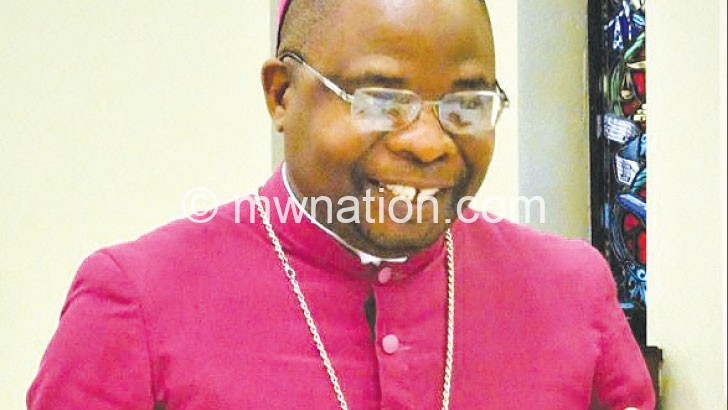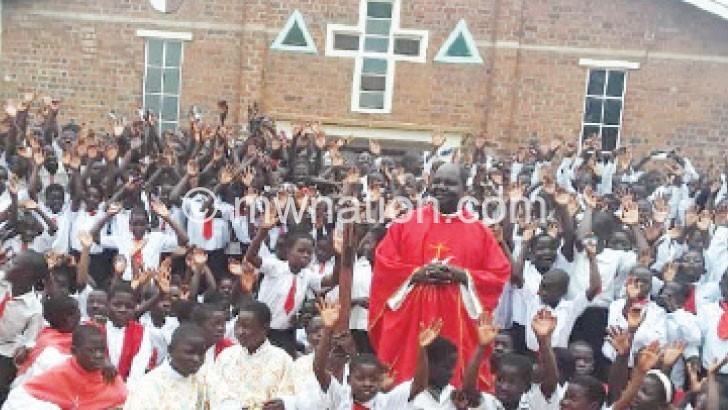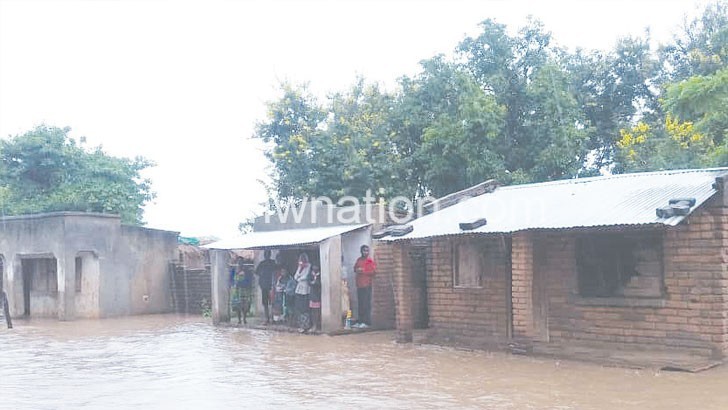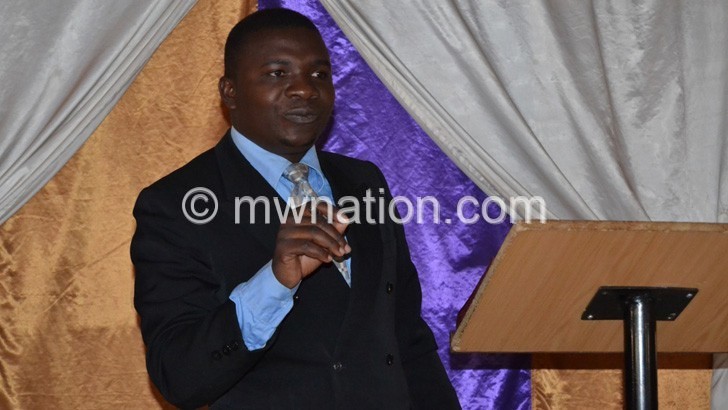Called to serve the people of God
The faithful in the Anglican Diocese of Northern Malawi (Adnm) were recently joined by a cross-section of people in witnessing the induction of 34-year-old Reverend Father Chester Moses Mhango as the new rector for St. John’s the Baptist Church at Chiteko in Chizumulu Island, Likoma District. Our CONTRIBUTOR FRANCO MWACHANDE JNR talked to Bishop Fanuel Magangani, who presided over the ceremony, to hear more about the function and other related issues. Excerpts:
What was the gathering all about?

It was a ceremony to formally present a new parish priest in a liturgical context. The ceremony is so arranged to remind a priest and the faithful of their [respective] responsibility together before God to serve Christ in His Church, and by their holiness and the example of their lives, individually and as a local community, to promote the mission of their Lord.
What is the significance of the ceremony?
Actually, following the appointment of a parish priest by the bishop, it is fitting that he be suitably introduced to the people of the parish and, in turn, be welcomed by the parishioners.
The Archdeacon should be present at the ceremony. He reads the letter of appointment and leads the procession to introduce the sanction of his ministry in a parish.
But the bishop might as well decide that, if he does not do so himself, the ceremony will be performed by the Auxiliary Bishop or, in his absence, by the Archdeacon.
It must be appreciated that an induction ceremony is an appropriate occasion to show unity and fraternity of the Presbyterian. It is desirable, therefore, that other priests, especially those of the deanery—diocesan and religious—be invited to concelebrate. Also, any deacon in the deanery should be invited to assist at the ceremony.
Representatives of the various parish organisations should be invited to take part in the readings, bidding prayers and the offertory procession. A representative of the deanery pastoral council should be invited. It is desirable that members of other churches should also be invited and, where appropriate, representatives of the civic authorities, too.
The mass will be of the Day or a suitable Votive Mass, if this is allowed. Alternative readings may be chosen if this will be of pastoral help to the people. After the Gospel, the homily is preached by the principal concelebrant. The induction ceremony then follows.
What is Votive Mass and Concelebrant?
Votive is a word derived from the Latin word votum, which means mass offered for a special intention. A concelebrant is the clergy who joins the principal celebrant at the altar.
Whenever we have an induction service, we take that service as a renewal of our ministry, and we are called upon to reflect on how we have been doing our ministry—asking whether we are in the right track or we have something amiss.
What is usually the message to the inducted priest and the congregation?
We are called to serve the people of God and not to rule over them. We are only doing the mission of the Lord and; therefore, let us continue to do the work of the Lord.
The diocese has 50 priests, two of which are missionaries in the Diocese of Eastern Zambia while two others are serving as lecturers at St. Leonard Kamungu Theological College in Zomba.
On Chizumulu Island, we have two Anglican parishes while on Likoma we have three—one of whom heads the Cathedral of St. Peter.
The parishes were instituted in 1938, but the island received the first missionaries in the 1880s.
All in all, we should not fail to remember that on the last day we will bear account of our actions when we shall appear before the Lord on the Judgment day.
Anything else to share?
Of course, yes. We know that the Church is a public entity. It is the people of God who live in a particular time and particular place. We don’t live in heaven. We are here on earth. We step our legs here on earth and we feed on the same earth. Whatever happens to this world affects us all. We, therefore, have to take part in the affairs of this world. Besides, our mission is threefold like that of Lord Jesus—evangelism, teaching and healing.
We also know that many of our clergy had taken side with either the leadership of the past or the current regime in their thoughts, action or both. We would like to ask that now things have happened the way God wanted it to be, and let us go back to the drawing board of our call, which is to participate in the mission of God.
Clergy need not be co-opted into politics, but may only cooperate. Let us leave the political space to the politician and continue to be the voice of the voiceless. Such that if the current government does not do that, which is just to the people, we should stand and offer the prophetic voice of rebuke. Let us not go with all our senses into politics, let us go back to the pulpit where we belong.
We should also remember that Covid-19 is real and that the battle to win it requires consented effort. The Church and the community at large need to listen to what health experts are saying while our prayer remains that the merciful Lord should take away this suffering from His creation. But all the time we must learn to be faithful to the Lord.





